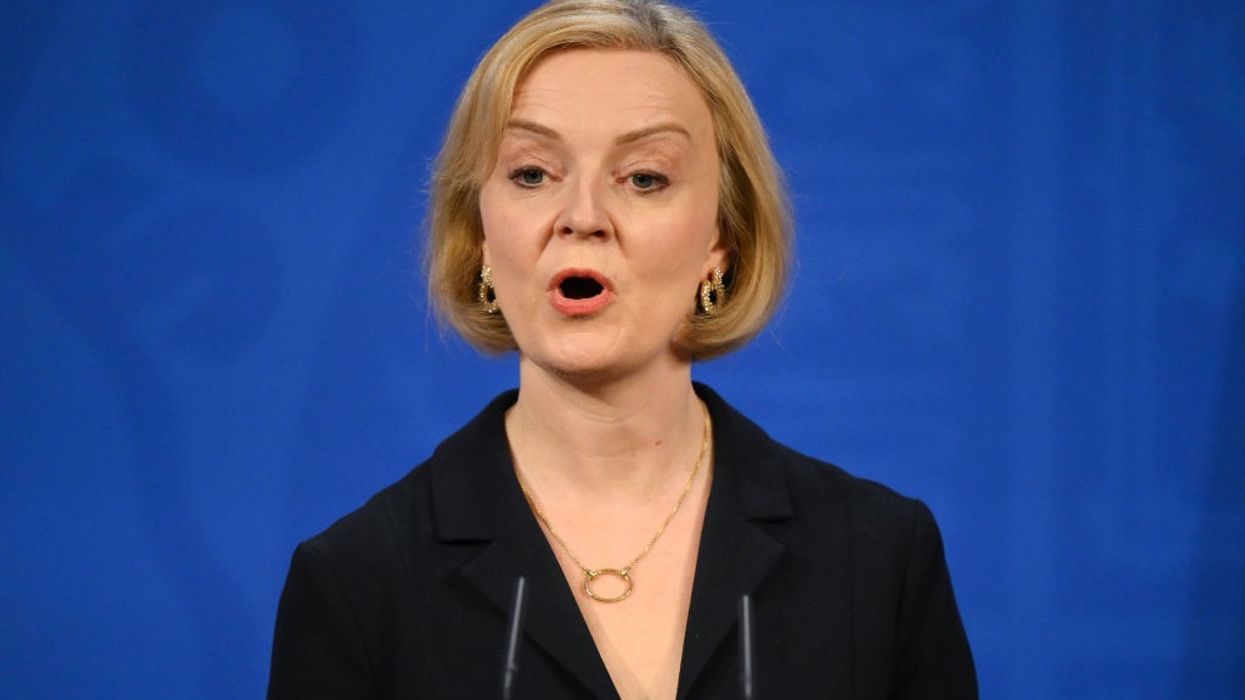British prime minister Liz Truss fired her finance minister Kwasi Kwarteng on Friday and scrapped parts of their economic package in a desperate bid to stay in power and survive the market and political turmoil gripping the country.
Kwarteng said he had resigned at Truss's request after being forced to rush back to London overnight from IMF meetings in Washington.
Truss, in power for only 37 days, then told a news conference she would now allow a key business levy to rise from next year, raising 18 billion pounds, as she accepted she had gone "further and faster" than markets had been expecting.
"We need to act now to reassure the markets of our fiscal discipline," she said.
Truss appointed Jeremy Hunt, a former foreign and health secretary, to replace Kwarteng.
"You have asked me to stand aside as your Chancellor. I have accepted," Kwarteng said in his resignation letter to Truss, which he published on Twitter.
She said in response: "As a long standing friend and colleague. I am deeply sorry to lose you from the government.
"We share the same vision."
The pound slid against the dollar after she spoke, trading 1.2% lower on the day at $1.1198 and two-year British government bonds, or gilts GB2YT=RR turned negative.
The plan for unfunded tax cuts crushed UK assets and drew international censure, but the pound and gilts have started to recover since the government started looking for ways to balance the books.
Kwarteng is the country's shortest serving chancellor since 1970, and his successor will be the fourth finance minister in as many months in Britain, where millions are facing a cost of living crisis. The finance minister with the shortest tenure died.
Truss's own position is in jeopardy.
She won the Conservative Party leadership last month by promising vast tax cuts and deregulation to try to shock the economy out of years of stagnant growth, and the fiscal policy Kwarteng announced on Sept. 23 aimed to deliver that vision.
But the response from markets was so ferocious that the Bank of England had to intervene to prevent pension funds from being caught up in the chaos, as borrowing and mortgage costs surged.
The duo had been under mounting pressure to reverse course after polls showed support for the Conservative Party had collapsed, prompting many colleagues to look for ways to force them out of office.
"The party loves the idea of principles and conviction politicians, but staying in power is everything," one party insider told Reuters. "Ruthless can also be popular."
MARKET ROUT
Having triggered a market rout, Truss now runs the risk of bringing the government down if she cannot find a package of public spending cuts and tax rises that can appease investors and get through any parliamentary vote in the House of Commons.
Her search for savings will be made harder by the fact the government has been cutting departmental budgets for years.
At the same time Conservative Party discipline has all but broken down, fractured by infighting as it struggled first to agree a way to leave the European Union and then how to navigate the COVID-19 pandemic and grow the economy.
"If you can't get your budget through parliament you can't govern," Chris Bryant, a senior lawmaker from the opposition Labour Party, said on Twitter. "This isn't about u-turns, it's about proper governance."
Underlining how far Britain's reputation for sound economic management and institutional stability had fallen, a source within the Group of Seven leading nations said G7 finance ministers at a meeting this week focused on the problems in Britain, and not the usual subject of Italy.
In Washington, Kwarteng was told by the head of the International Monetary Fund of the importance of "policy coherence". His flight back to London was carried live by television news channels. He was fired minutes after arriving back in Downing Street.
In Westminster, Truss has been trying to find agreement with her cabinet ministers on a way to preserve her push for growth with measures acceptable to her lawmakers that would also reassure financial markets.
Rupert Harrison, a portfolio manager at Blackrock and once an adviser to former British finance minister George Osborne, said markets have now almost fully priced in a U-turn.
"(That) means if the U-turn doesn't come markets will react badly," he said on Twitter.




